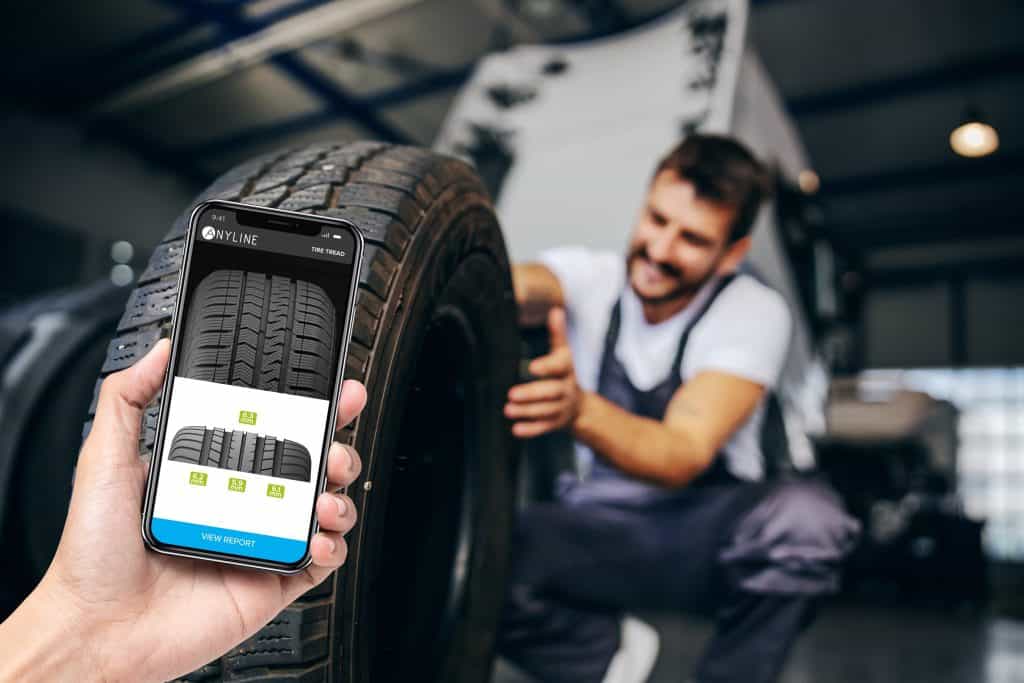
A recent survey commissioned by Anyline, a global leader in AI-powered mobile data capture and insights, exposes safety concerns resulting from poor understanding of proper tire care and insufficient maintenance practices among rideshare drivers. The survey reveals these insights ahead of National Tire Safety Week, an initiative led by the U.S. Tire Manufacturers Association that is dedicated to educating drivers about the important role tires play in ensuring road safety.
While more than 80% of rideshare drivers agree safety is one of the most important factors to their passengers, just one-third (34%) rate themselves as extremely knowledgeable about tire safety. Almost one-quarter (23%) think 1/32 of an inch of tread depth or less is safe. Moreover, two-thirds of drivers (64%) say they check their tires regularly, but nearly half (48%) rely on a visual inspection to evaluate tread depth, a method tire experts widely regard as inadequate and highly subjective.
“Our survey reveals some seriously eye-opening information – not only for rideshare users, but for the drivers and companies they work for,” said Chris Garcia, head of U.S. automotive at Anyline. “Ridesharing has revolutionized the way people get to and from their destinations, and yet the industry is relying on outdated or insufficient tire management practices. We believe more can and should be done to leverage next-generation tire monitoring and management tools to help protect passengers and make our streets safer.”
Other findings from the Anyline survey of rideshare drivers across the U.S. include:
- Delays for Drivers: More than one-third of rideshare drivers (38%) have experienced a tire-related emergency or sudden loss of pressure while performing a rideshare service. In addition, more than 40% of drivers have had to cancel or delay rides due to vehicle maintenance issues. These numbers highlight the importance of proper and accurate tire inspection methods, which can be improved by leveraging data-driven tools for tread depth measurement and other real-time tire monitoring.
- Inconsistent Maintenance Practices: Out of the rideshare drivers surveyed, 35% said they check their vehicle’s tires infrequently (i.e., only quarterly or annually), while 21% are checking tire conditions only when prompted by a vehicle warning alert. Reasons for not checking tires regularly include forgetfulness, lack of knowledge on how to do so, and lack of time.
- Appetite for Technology: More than half of rideshare drivers (56%) said they would measure tire tread depth monthly or more if they had access to technology that would allow them to do it via a smartphone or other camera-enabled device.
The Anyline survey highlights the need for increased adoption of data-driven technology solutions – not just for rideshare drivers and companies, but across the tire, automotive service, and commercial fleet industries. Anyline’s AI-powered vehicle and tire scanning technology instantly transforms captured data into actionable insights, optimizing operations and reducing costs. The technology-driven tool is able to measure tread depth, detect dangerous wear and ultimately enhance drivers’ safety. Digital inspections are the way of the future reducing human error and ensuring safer roads.
“Tire safety is a crucial yet frequently overlooked aspect of our daily lives,” said Kim Kleine, Senior Vice President of Public Affairs at the U.S. Tire Manufacturers Association. “From our loved ones to key American industries like rideshare services and commercial trucking, everyone relies on tires day in and day out. Tires are the enablers of mobility, and our society depends on their performance. National Tire Safety Week serves as a timely reminder for drivers across the nation to embrace a proactive mindset towards tire maintenance, ensuring we can all continue moving forward safely and efficiently.”